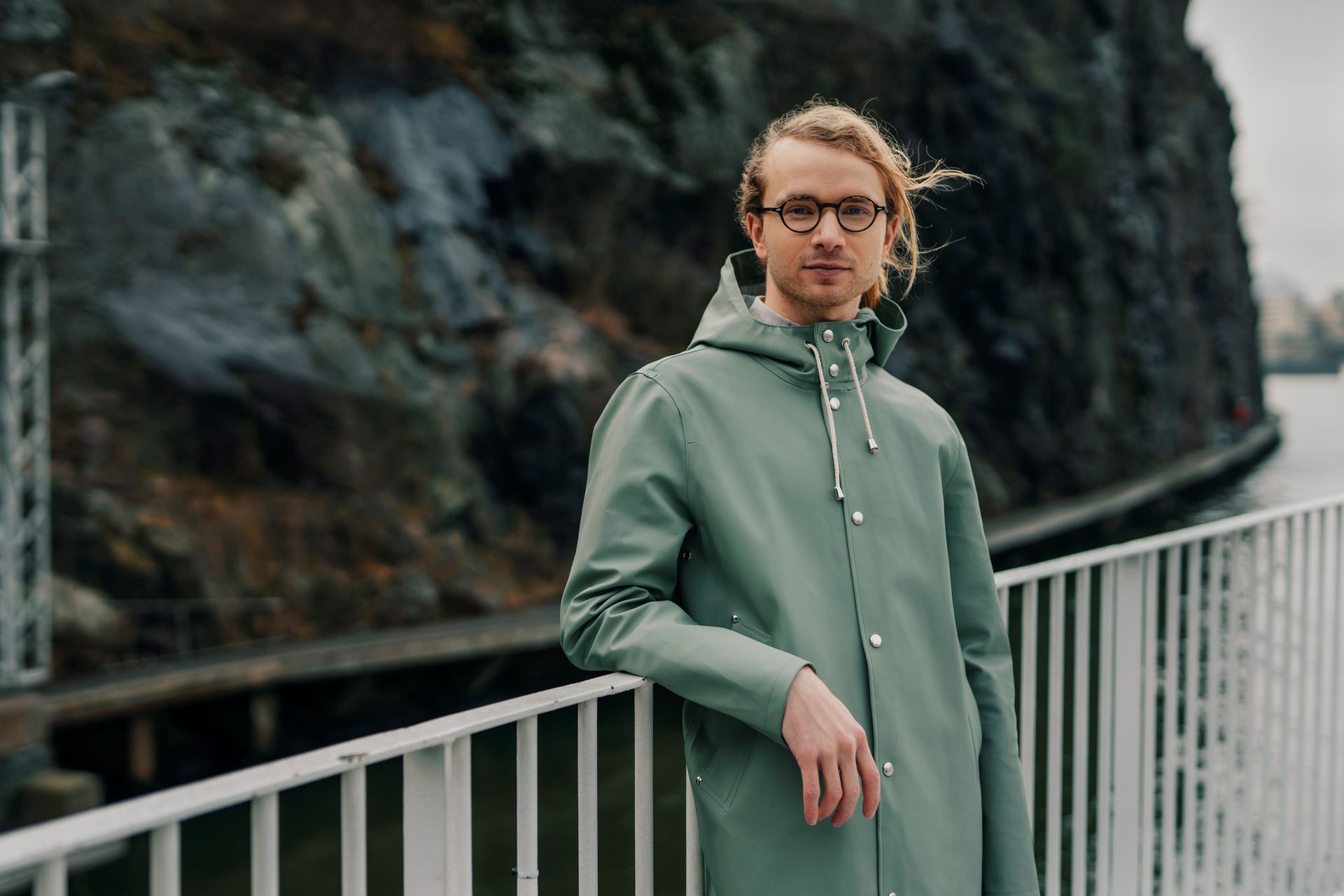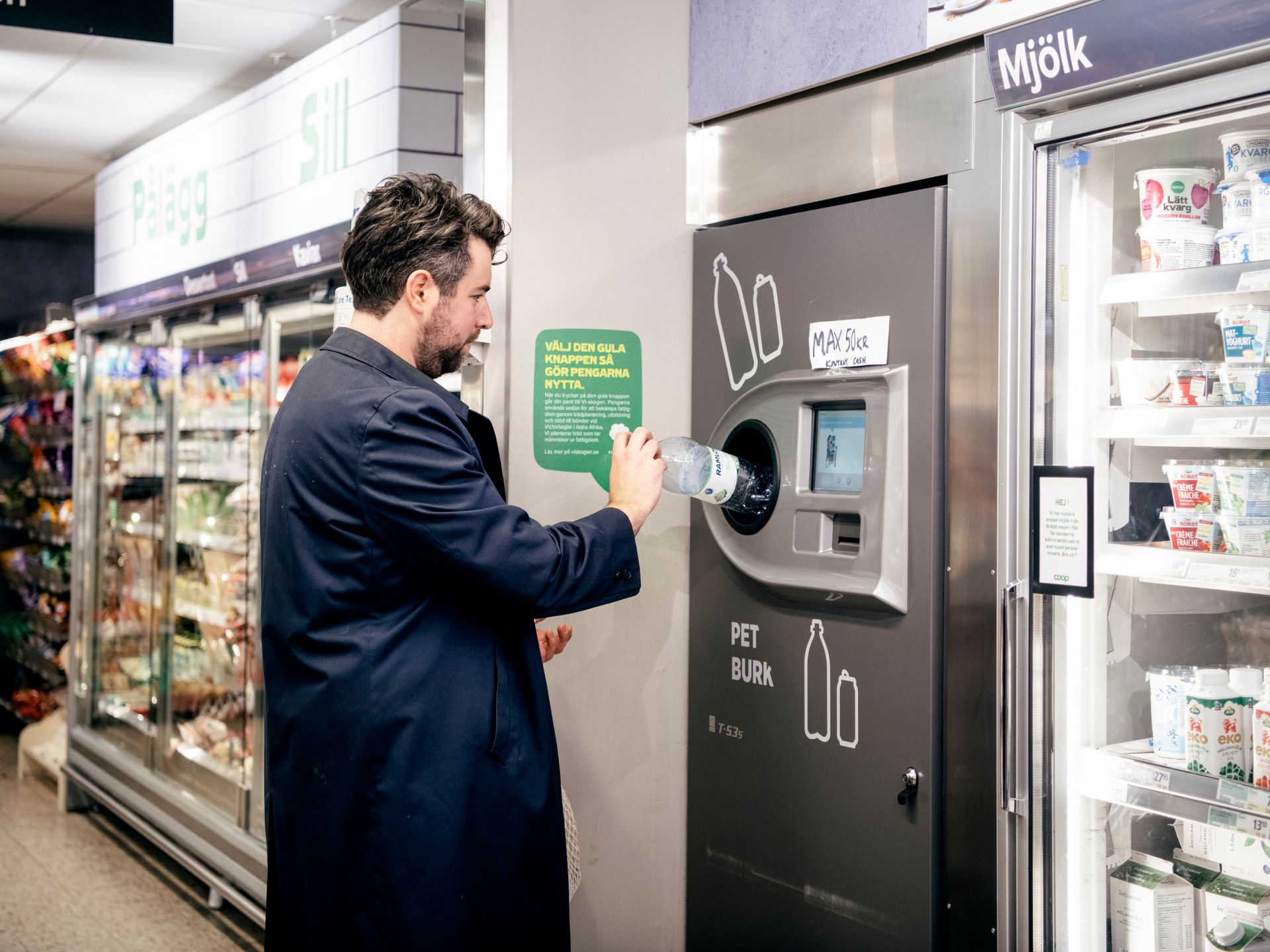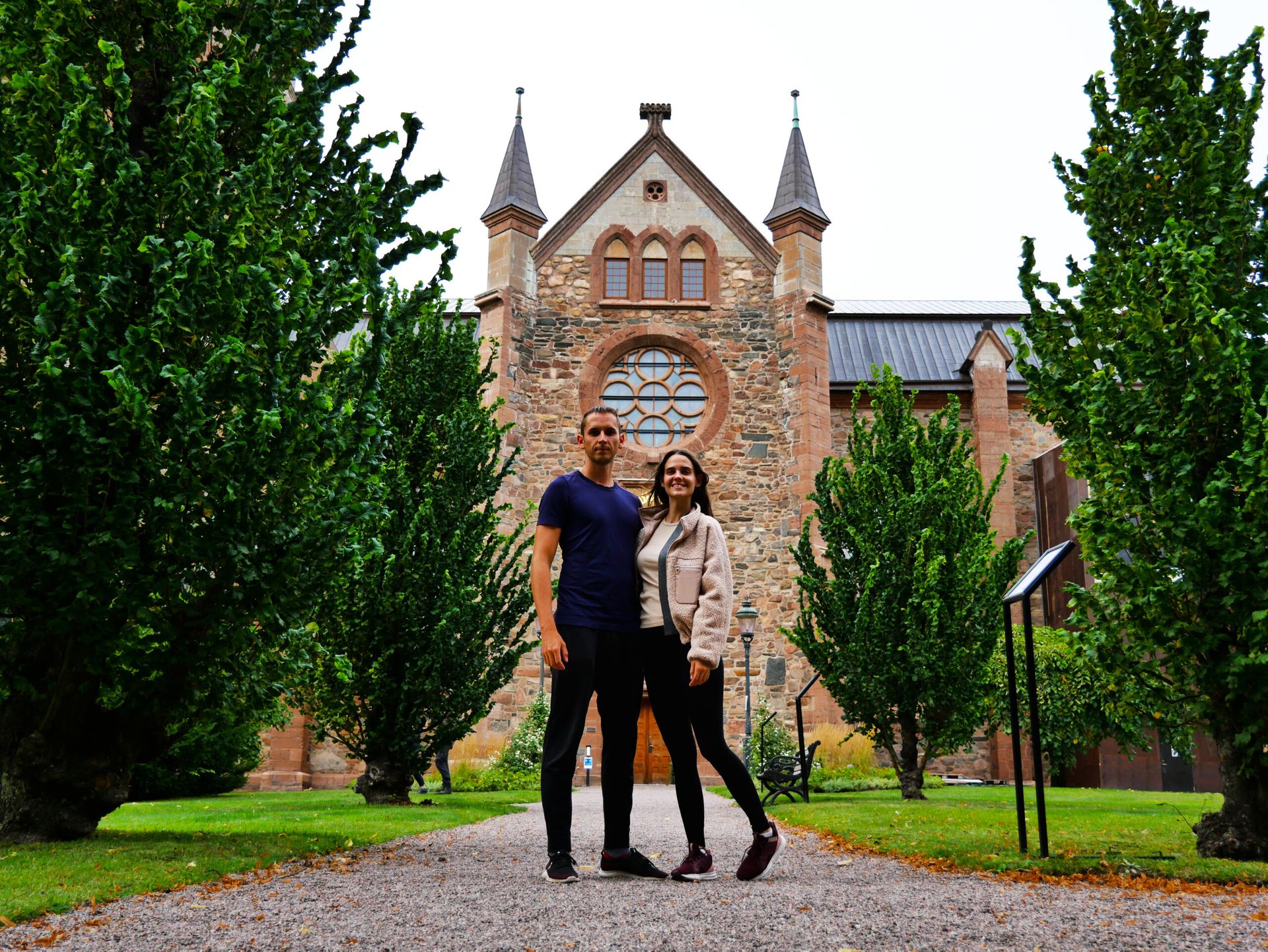Day-to-day practicalities
Here, we do things the Swedish Way. Umm… but what does that even mean? Well, it’s everything. It’s how we live, learn & love. It’s how we eat, move, build, buy & do business.
It means coming out of class, searching for the correct bin for your plastic-free compostable coffee cup. It means using a digital payment app to buy that coffee in the first place.
It means roaming free through the forest 10 minutes away from your home. Or roaming the vintage shops of Södermalm, looking for that perfect sweater.
And it means taking the bus to uni, safe in the knowledge that your food waste keeps the bus running. And, well, it also means not making eye contact in public places. Ever. 👀
And it might just be for you.
“Sweden has allowed me to do some things I would never have done before. I used to hate hiking. But now? Now I could easily spend a day hiking in the snow”
Getting around Sweden is easy. From trains and buses, to cars and bicycles, the options are many.
And buses and trains are quiet. On time (erm, mostly 😬). Just don’t be surprised if no one sits next to you. It’s not you, it’s us – we love our personal space. And long journeys that snake through hundreds of kilometres of Swedish countryside can actually cost less than in other European countries (we’re looking at you, England).
Yeah, you can get good student discounts on buses and trains. But most students prefer to cycle.
And we get why. It’s basically free. After buying the bike, your day-to-day transport costs drop to zero. And it’s environmentally friendly. So you can take your bike to a climate strike – guilt-free.
But what about bike lanes? Yep, you’ll see them everywhere. You can’t miss them. They’re completely separate from the rest of the traffic – so you can zip about the city pretty easily.
You can get student discount on local public transport.
Okay, so most regions have their own local transport company. ↗️ And you can get student and youth discounts at all of them. But how much does a monthly student card cost? Well, it’ll depend on the region and company, but it could cost you up to SEK 700.
Travelling a little further afield? Look out for those sweet last-minute deals.
So, there are two major, long-distance train companies here. SJ ↗️ and VR. ↗️ And if you’re a student – or under 26 years old – you can get 15-20% off your tickets when you travel with them. You’ll need a valid student ID to get the student discount though.

“Stockholm is teeming with ways to live more environmentally friendly. Here in the Stockholm Region, buses – which everyone rides – run on biogas from food waste. When we’re not using public transit, we bike everywhere, and we even order groceries from a company that delivers by bike!”
We’re pretty much a cashless society. So you’ll use card payments more often than not.
You’ll rarely see us paying with cash these days. Not even for small purchases. In fact, many places now only accept card payments. But don’t worry, you’ll still be able to withdraw Swedish kronor (SEK) from a bank or ATM 🏧 if you need cash.
So, that’s probably one of the most common sentences you’ll hear between friends here.
And Swish ↗️ is an app we use pretty much every day. To buy a coffee at the local café. To transfer money to friends. But you’ll need a Swedish bank account to get it.
Though some are open until 18:00 in bigger cities. But they’re closed on the weekends.
Want to open a bank account? We’re not gonna lie. It can be tricky.
You’ll probably need a Swedish personal identity number to open an account. And maybe even a Swedish ID card too. But check with your university. They’ll have up-to-date info about opening a bank account.

“I want to be a reason for a change for good. And I came to study sustainability in an environment where I can really see it working in practice” – Elnaz, Uppsala University.
Photo: Oskar Omne
One of the biggest ways we can make a difference in the world is by changing our everyday behaviours. And that includes how – and where – we shop.
And when you study with us, you might find yourself taking a canvas tote bag to the supermarket 🛒 every single time you shop, avoiding plastic bags at all costs. And you might look for every possible way to cut down on your one-use plastics, being sure to recycle any packaging you have to use. And you might question whether you really need any more stuff. And try to go for the second-hand option if you do.
Reducing food waste is high on our agenda.
And together we can make it happen. How? Well, you might save yesterday’s leftovers for today’s lunchbox. Just head to any microwave room at uni to see how lunchbox culture really is a thing here. Or you might “save” leftover, unsold food ↗️ from cafes, restaurants, and supermarkets. All at a discounted price too. These small, everyday choices aren’t just good for the environment. They’re also great for your student budget.
And while we’re on the topic of food and shopping, you shouldn’t have too much of a problem finding food to cater to your diet.
Contrary to popular belief not everyone here is a vegan. But if you are, Sweden is a great place to be. And for carnivores, we do that ethically too – local sourcing and organic farming are super important here. Worried about not finding everything you’re used to at home? Umm.. okay, we won’t have everything. Some ingredients might be tricky to find. But you should find quite a lot. And most cities have local international shops ↗️ that not only have a wide variety of ingredients, they have pretty good prices too. ↗️
Okay, so Sweden has a state-owned alcohol chain – “Systembolaget”. And it’s the only shop where you can buy alcohol with an alcohol content of over 3.5%. Yep, so it’s the only shop where you can buy spirits, wine, and stronger beer. You will find “folköl” – beer with max 3.5% alcohol content – in supermarkets though. And while the legal drinking age here is 18, you’ll need to be 20 years old to actually buy alcohol from Systembolaget.
Oh, and Systembolaget has limited opening hours too. So, if you want to buy alcohol here, you’ll have to plan in advance. Systembolaget is open between 10:00 – 18:00 Mondays to Fridays. From 10:00 – 15:00 on Saturdays. And Sundays? It’s always closed on Sundays. And they’re closed on some public holidays too. So, if you want some beer or wine to go with your Valborg ↗️ or Midsummer ↗️ celebrations, you’ll have to be super organised.

You can return empty plastic bottles and cans to any supermarket or grocery store. And get cash back.
Photo: Margareta Bloom Sandebäck/imagebank.sweden.se
We’re aiming to be a zero waste society. And we’ve got our work cut out for us.
But one thing’s for sure. Recycling is a big deal here. And it’ll quickly become second nature to you. And we’ve made it easy for you. You’ll find recycling stations everywhere – in public spaces as well as your apartment building. ♻️
Got a plastic drinks bottle? Don’t throw it – recycle it. You get money back if you do. So, if it’s got the black-and-white recycling symbol on it, head to your local supermarket, and return it in the “pant” machine. And then use the coupon you receive to get money off your next purchase.
30 national parks. 5,000 nature reserves. 100,000 lakes. And kilometres and kilometres and kilometres of coastline – pure, wild & untouched.
We love nature. 🏞️ And it’s obvious why. We’re completely surrounded by an incredible wilderness. And even in our biggest cities it’s never far away. So if you feel the need to escape the bustling city vibes, it’s easy to get away and surround yourself in the peace and quiet and beauty of the Swedish countryside.
“Allemansrätten” – the Right of Public Access – gives you have the right to access all land in Sweden. ↗️ Public and private. That means you have the right to 🚵🏻♂️ bike, swim, hike, run, camp, and fish just about anywhere in the countryside. And you can even forage for your own berries and mushrooms. We have great respect for our nature. And we trust that you’ll respect our nature and wildlife too.

“No matter how cold this country can get, the cold is defeated by the warmth of the people of Sweden” – Samhita, Dalarna University.
Photo: Oskar Omne
Sweden is known for being cold and dark and snowy. 🌨️ And it is. Sometimes.
Even when it’s cold and dark, we know how to do cozy indoors really well. And if you’re lucky, you might even get a glimpse of the Northern Lights.
But we’re also the land of the midnight sun. And for half of the year, it’s light and sunny and warm and the country is transformed.
 I moved to Sweden with my partner. How did it go?
I moved to Sweden with my partner. How did it go?